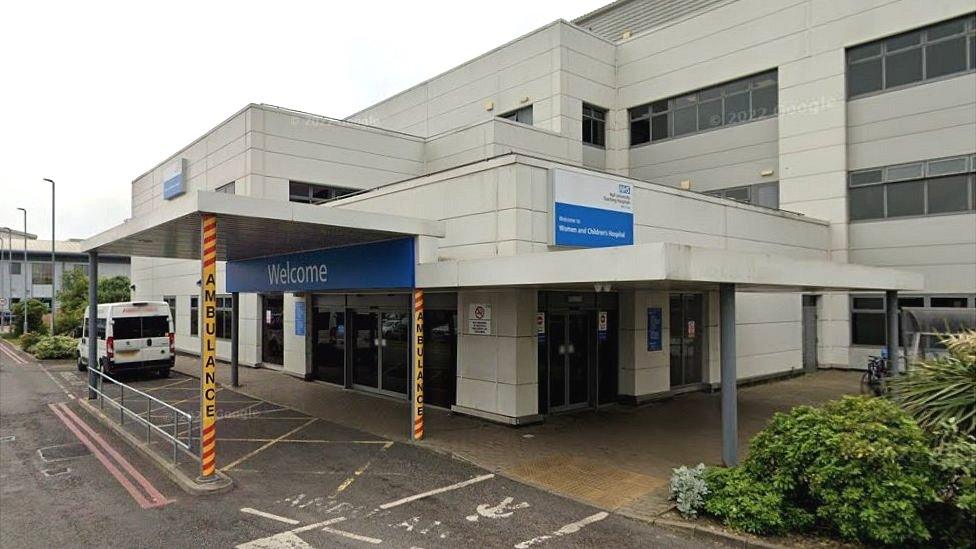Hull coroner to raise concerns as forceps blamed for baby death
- Published
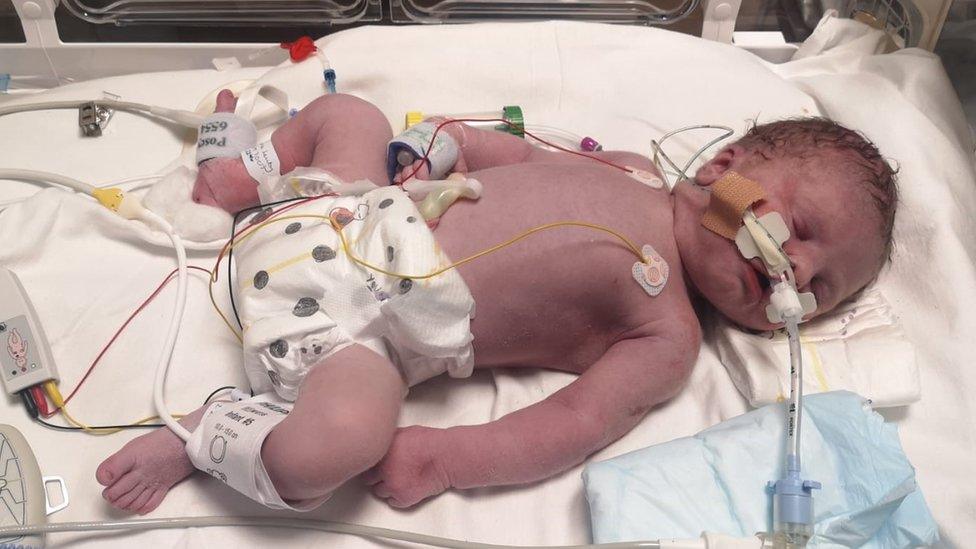
Finley May, pictured shortly after his birth, died later from a spinal cord injury caused by forceps used to deliver him
A baby boy died from injuries caused by forceps used during his delivery, a coroner has concluded.
Finley May was born on 16 February 2021 at Hull Women and Children's Hospital following an uncomplicated pregnancy.
He died on 16 March 2021 at Hull Royal Infirmary from a spinal cord injury caused by Kielland forceps.
Coroner Professor Paul Marks said he planned to raise concerns about birthing methods following the "sad and complex case".
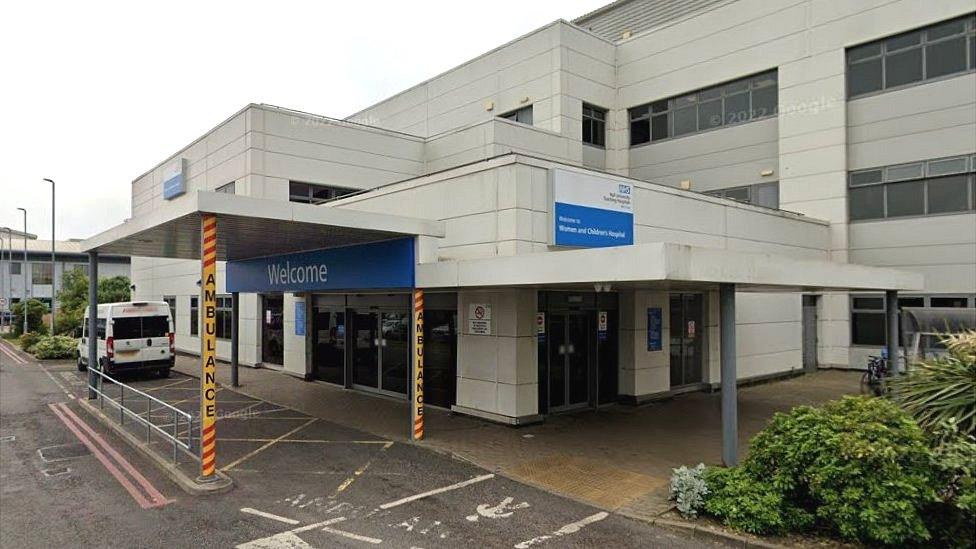
Finley Austin May was delivered using forceps at Hull Women and Children's Hospital on 16 February 2021
The two-day inquest heard Finley was 28 days old when he died.
Kielland forceps were used by obstetricians Dr Manu Ewadh and registrar Dr James Tibbott, who was supervising.
Returning a narrative verdict, Prof Marks said Finley was born "floppy" and "blue". Resuscitation followed, with hypoxic ischaemic encephalopathy (HIE) - brain damage caused by oxygen starvation - suspected.
Prof Marks said the "clinical picture" was "at variance" with HIE, and other conditions were explored, with an MRI scan carried out.
The scan revealed a cervical [spinal] cord injury, which the coroner accepted was caused by Kielland forceps. Finley also suffered two skull fractures.
Jo Moore, a barrister representing Finley's family, asked Dr Ewadh: "Do you feel that you, or Dr Tibbott, or a combination of you both, used excessive force?"
"No," replied Dr Ewadh.
Ms Moore asked her how she thought the injuries had occurred.
Dr Ewadh replied: "The nature of the injury was the rotation [of Finley] but the fractures they are not sure."
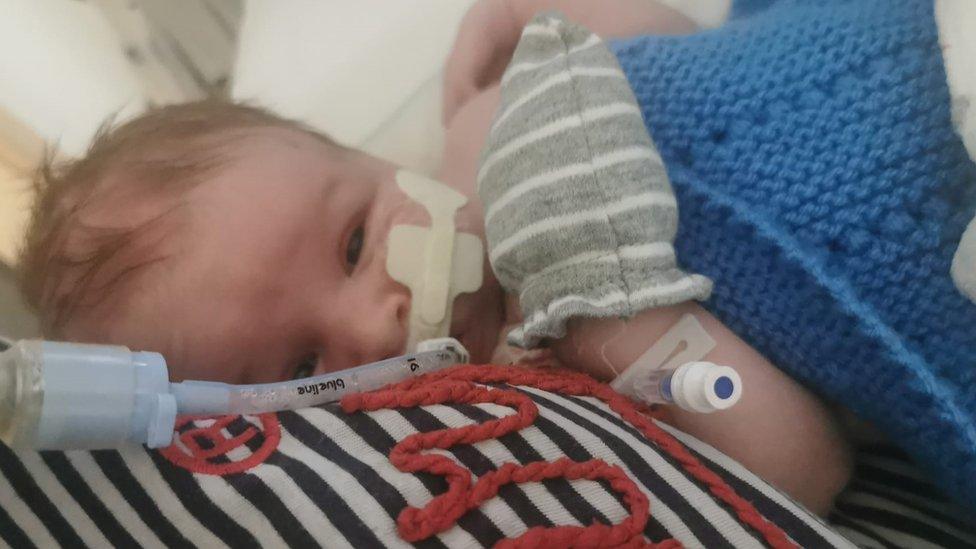
Finley died at Hull Royal Infirmary, aged 28 days
Paul Appleton, a solicitor representing Hull University Teaching Hospitals NHS Trust, asked her if any problems were noted during the application of the forceps.
Dr Ewadh said it was "a no-problem application".
She said "we all felt sad" about Finley's decline, adding the team was "not sure what had happened" until it received the results of the post mortem examination.
Earlier, Dr Tibbott explained forceps were applied due to "slow progress" of labour. He said the forceps did not come with a pressure gauge enabling force to be measured.
Dr Tibbott, who revealed he had delivered "about 50" babies using Kielland forceps, said Finley's head had "rotated" but not his body.
Dr Uma Rajesh, an obstetrician employed by the trust who was asked to look at the care afforded Finley, confirmed Kielland forceps were withdrawn from use in response to Finley's death.
She clarified the decision was also triggered by the departure of a consultant with experience of using the forceps.
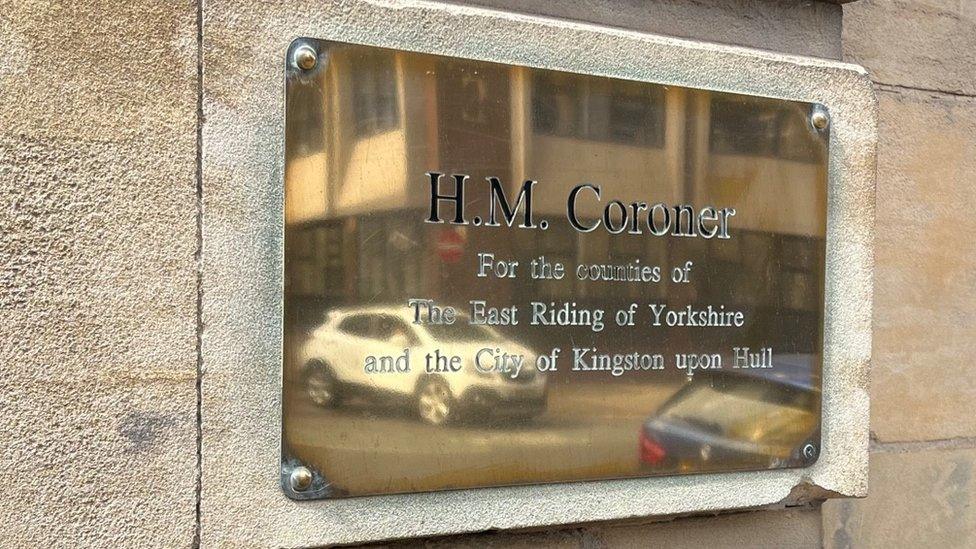
Coroner Prof Paul Marks plans to write to the Royal College of Obstetricians and Gynaecologists with his concerns
Some trusts still use the forceps, added Dr Rajesh.
Philip Steer, professor of obstetrics at Imperial College London, gave evidence as an independent expert witness, and said he felt, in this case, it had been "appropriate" to use the forceps.
He was unable to comment on whether excess force was used when using the forceps "because I was not there".
Finley's mother, Sasha Leuty, a radiographer previously employed by the trust, told the inquest on Thursday she "would never have agreed" to the use of the forceps had she been made aware of the risks.
She also said she would have accepted a Caesarean section had it been offered.
Prof Steer warned Caesarean sections were not "an easy out" and carried risks, including skull fractures, to babies.
Prof Marks said he planned to write to the Royal College of Obstetricians and Gynaecologists, copying in NHS England.
He said he was concerned women and babies could be exposed to even more risk as a result of the "vacuum" left by the withdrawal of Kielland forceps.
'World came crashing down'
After the hearing, Ms Leuty said: "When we were told he couldn't survive off the ventilator, our whole world came crashing down around us as we had to say goodbye to our baby boy.
"We'd do anything to have Finley back in our lives but we know that's not possible.
"At least we now have some answers. All we can hope for now is improvements are made so other families don't have to go through the suffering we have."

Follow BBC East Yorkshire and Lincolnshire on Facebook, external, Twitter, external, and Instagram, external. Send your story ideas to yorkslincs.news@bbc.co.uk, external.
Related topics
- Published29 June 2023
